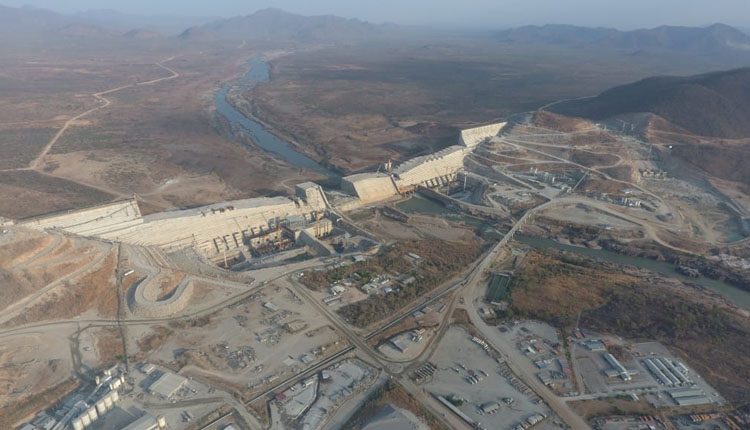Tunisia hopes to have a UN role in resolving Egypt-Ethiopia dam dispute
Tunisia is hoping Egypt, Ethiopia, and Sudan resume negotiations and reach a binding agreement on the Ethiopian controversial dam within six months, according to a draft resolution circulated to the United Nations Security Council on Wednesday.
The Tunisian resolution, has been circulated ahead of a UN Security Council meeting on the dam set to take place on Thursday, calls for new negotiations to be hosted by the African Union and the UN’s secretary-general.
Referring to the Grand Ethiopian Renaissance Dam (GERD), the Tunisian draft is calling for an “agreement on the filling and operation of the GERD that ensures Ethiopia’s ability to generate hydropower from the dam while preventing the inflicting of significant harm on the water security of downstream states,” according to a copy of the draft seen by Bloomberg.
Ethiopia has remained largely intransigent against any efforts to engage outside help, rejecting a recent Egyptian-Sudanese proposal to involve the UN, the U.S., and the European Union as mediators. It argues that the project, which includes a 6,000-megawatt power plant, is fundamental to its long-term development goals and has sought to play down Egypt and Sudan’s concerns that the project will limit their access to the Nile’s water.
Egypt and Sudan have denounced Ethiopia’s move for starting the second phase of filling the dam’s reservoir. They said the move violates existing agreements and threatens security in the region.
The step “represents a dangerous escalation that reveals Ethiopia’s bad faith,” Egyptian Foreign Ministry said in a statement released earlier this week. The Ethiopian move violates international laws and norms and existing agreements on sharing Nile water, it added.
The resolution sought by Tunisia urges “the three countries to refrain from making any statements, or taking any action that may jeopardise the negotiation process, and urges Ethiopia to refrain from continuing to unilaterally fill the GERD reservoir.”
Both Egypt and Sudan depend heavily on the Nile for fresh water. Cairo has been particularly bellicose in its objections, as President Abdel Fattah al-Sisi warned earlier this year that any attempt to take “a drop of Egypt’s water” would have destabilising effects on the region.


